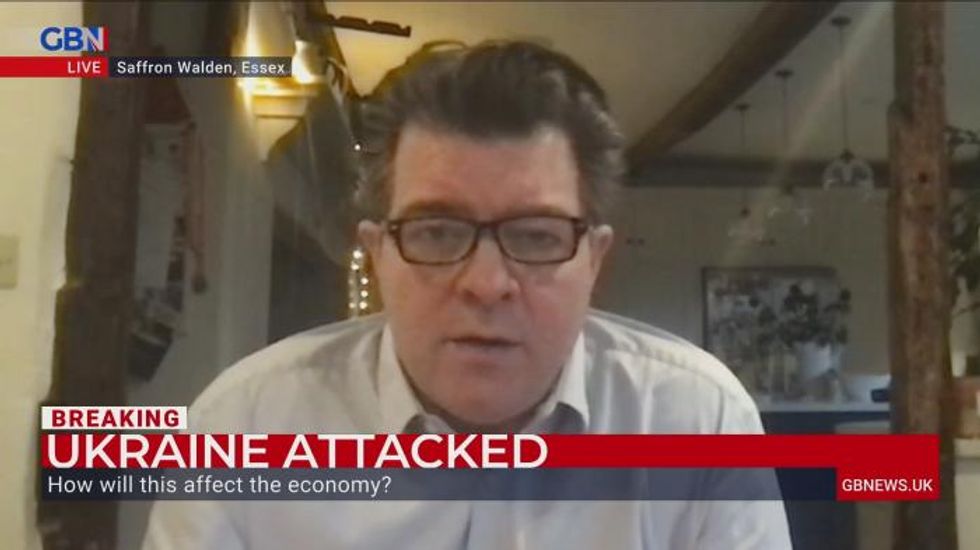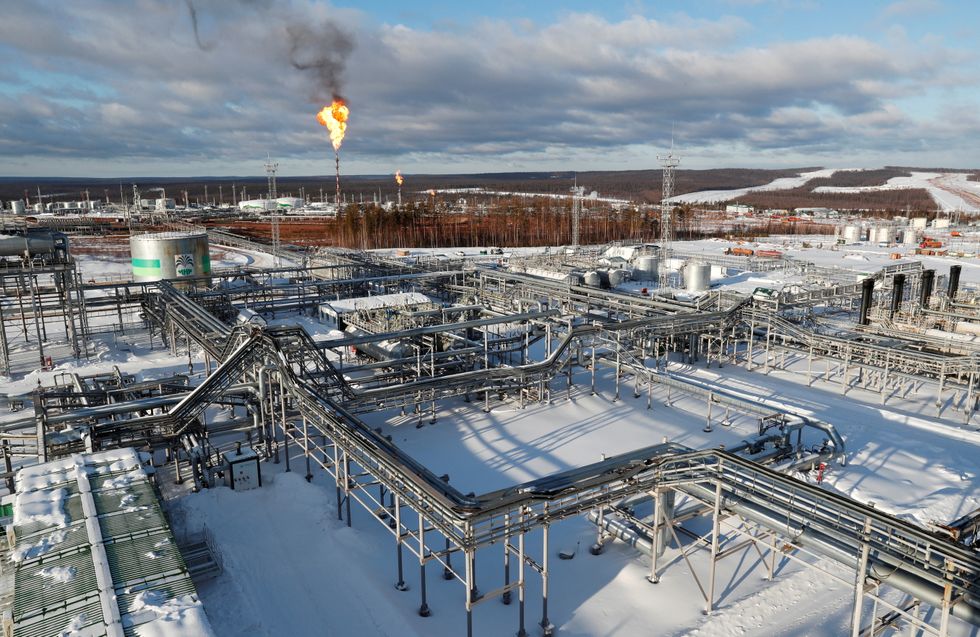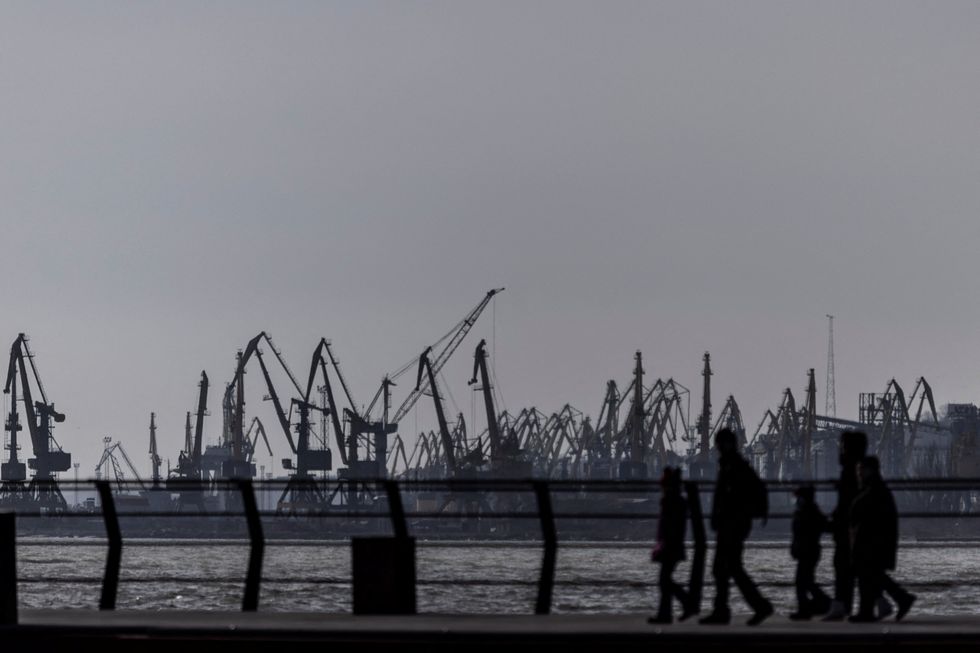Don't Miss
Most Read
Trending on GB News
As the situation in Ukraine continues to worsen, it is easy for Brits to miss how the war could affect everyday life back home.
But the reality is that the ongoing invasion could have big ramifications in Blighty.
Speaking in the House of Commons recently, Boris Johnson acknowledged that the invasion would cause “global economic consequences”.
He added: “The Government will do everything possible to safeguard our own people from the repercussions for the cost of living.”
But experts have forecasted that household energy bills will reach £3,000 a year as a result, with Government officials also believing that petrol prices will also rise above £1.60 a litre.
From electricity to gas, food and cyber-attacks – GB News looks at what aspects of British life could be affected by the attack.
Energy
Russia is a big player in the oil industry
VASILY FEDOSENKO/Reuters
Russia is one of the world’s largest producers of energy, supplying approximately 40 percent of Europe’s gas.
As a result of the country's market position, the Kremlin has a huge influence on the prices of energy in Europe.
European gas prices have risen by as much as 41 percent as a result of the attack, while the UK’s prices have also jumped by around a third.
Electricity prices are also expected to rise given that the majority of UK households relying on gas central heating and around a third of our electricity is generated by gas.
With people already facing record energy bills in April, when an almost £700 rise in the energy price cap comes into effect, the potential for a further rise is not the news anyone would have hoped for.
Food
The closure of Ukraine's ports could be catastrophic for global food supply
CARLOS BARRIA/Reuters
Russia and Ukraine are big players in the global supply of wheat, corn and sunflower oil.
Collectively, the two countries account for 29 percent of global wheat supply, 19 percent of corn and 80 percent of sunflower oil.
Even though most of their supply heads to Asian and African markets, it is thought that the invasion could cause huge issues with the supply chain as buyers look elsewhere to secure vital imports.
Ukrainian ports are currently closed with Russian forces attacking by land, sea and air - effectively suspending maritime trade in Ukraine until further notice.
This could have huge ramifications on several global supply chains if the ports remain closed when the harvest begins in the spring.
Mortgages
After already raising interest rates twice in three months, the Bank of England may well be under more pressure soon.
Even before Putin's invasion, economists warned rate-setters could need to go faster and further on hiking borrowing costs.
And now the wheels could be in motion.
City forecasters at Capital Economics believe it would keep “inflation higher for longer” through climbing fuel costs and likely mean faster rate rises.
Cyber war
With the West seemingly unable to deploy military attacks on Russia, there is a strong possibility that countries could turn to cyber-attacks as an alternative way of getting to Putin.
This could cause a major cyber war between Russia and the West, opening up the possibility to catastrophic issues with global software - something the modern world is heavily reliant on.
Hackers could either target national websites, such as banks and government pages, or national infrastructure such as GP data and other personal information.
Moscow has been accused of several high-profile acts of cyber warfare in recent years, too.
Donald Trump's election as US President in 2016 is perhaps the most noteworthy example, where Russian hackers were accused of sabotaging Hillary Clinton's campaign.












